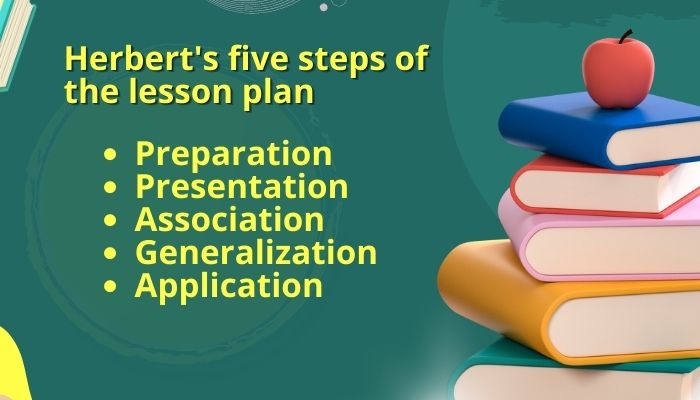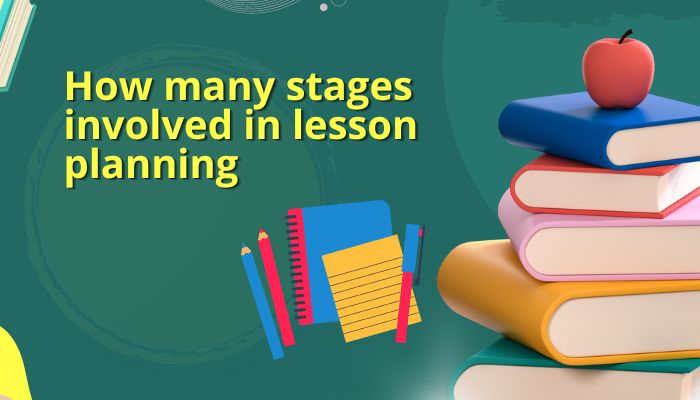Lessons don’t just fall in your lap. Even if you’re a naturally gifted teacher, there is still a lot of work that goes into planning out what students will learn, how they’ll learn it, and when they’ll learn it.
Every week, millions of students in the United States complete homework. To make sure that these students are learning the most from the homework assignments, it’s important to understand how to plan lessons.
Lesson plan development is an ongoing process that starts with a clear goal of what needs to be accomplished, followed by research about the specific learning experience in its planning stage.
This article will discuss different stages of lesson planning that can be used as a guide for planning a lesson.
What are the Lesson plan activities for students?
A lesson plan must include the activities that are necessary for students to learn what they are expected to learn. The activities should effectively use the resources and assist students in preparing for their objectives.
Activities involved in lesson planning will vary, depending on the objectives and learning outcomes. Activities may include reading, writing, speaking in class, or any other form of communication involved in a lesson.
lesson planning steps
Different types of lesson plans require different steps in the lesson planning process. Some steps may be repeated throughout the year while others may not be used regularly.
For example, they may use a progress check in the first few days of school or during weekly meetings, while they may not complete a book report on a weekly basis. Here are some of the common steps that can be found in lesson planning:
1. Plan a lesson based on the objectives
The first step in planning a lesson is to know what students have been learning these past months. When you know what students have learned, you will be able to determine the objectives for the lesson at hand.
You can use teacher resources such as books, worksheets, or other school materials to help plan lessons. You can also use other resources like the internet, newspapers, and magazines to find information that will be appropriate for the students you are teaching.
2. Plan activities that include teaching and learning techniques
When planning activities, it is important to have a clear idea of what you are trying to accomplish. Many instructional activities involved in lesson planning include actual teaching of the topic or subject.
Be sure to use teaching and learning techniques that are appropriate for the students you are teaching.
If you are teaching a topic that is difficult, use teaching and learning techniques that will help your students develop more effective learning skills. Wording and teaching style are also important to keep in mind during lesson planning.
Keeping your lessons organized will help you keep track of your lesson plan activities. This will make it easier for you to steer clear of confusion, forgetfulness, and other problems that can stem from disorganization.
3. Evaluate the effects of your lessons
When you have completed planning your lesson, it is time to evaluate your work. Evaluating the results of your work will help you decide whether or not you need to make any changes to keep your lessons on track.
Be sure to evaluate your lessons at least once a week, if not more often. When you evaluate your lessons, you can learn ways to improve:
- When planning and creating new lessons, include using teaching and learning techniques that will help foster active learning.
- It is important that you are comfortable with the teaching techniques you use. If you find one teaching technique ineffective, try another.
- Remind students to take notes during your lessons and to save them until they complete the lesson plan activities.
- When using new teaching and learning techniques, be sure to include time in your lesson plan to evaluate the technique’s effectiveness.
4. Develop and deploy a lesson plan
Nobody who is a professional can ignore the importance of lesson planning because it’s the pillar of every step involved in teaching.
When you develop and deploy your lesson plan, it is important to align it with the school’s policies and the goals of student achievement and academic improvement. When developing and deploying a lesson plan, be sure to include the following elements:
- A clear goal of what students should learn.
- A plan for helping students reach the goal by including teaching and learning techniques that promote active learning.
- The lesson outline should include the following information:
- Keys to Teaching Activities and Learning Activities that will facilitate student learning.
- A clear explanation of how products will be used by students.
- A plan for monitoring student progress through the use of work samples and homework.
5. Evaluate and update the lesson plan
It is important to evaluate lessons in order to ensure that they meet the standards of teaching and learning for educational purposes. When you are evaluating your lessons, be sure to take teacher and student feedback into consideration.
Here are some areas where you can evaluate your lessons:
- Evaluate the activities you have included in your lesson plan. Are they effective?
- Evaluate the organization of lesson planning activities and how it will be organized for students.
- Evaluate your use of teaching and learning techniques to ensure that these techniques are effective.
- Evaluate your lesson plan as a whole. Have there been any changes to include in the plan?
- Document lessons using a lesson plan book, as well as any other material related to the lesson such as workbooks, posters, and so on.
| Components Of Lesson Plan |
|---|
| There are several components to a lesson plan. A lesson plan includes: 1. Focus 2. Objectives 3. Learning activities 4. Evaluation and reflection 5. Materials and resources 6. Assessment of student learning 7. Collaboration with teachers 8. Implementation 9. Revision We can think of lesson planning as a tool for helping students learn, develop their academic skills, and make connections between knowledge in different domains of knowledge. It is a series of activities and strategies designed to help students progress from simple learning activities to complex learning activities that require more advanced reasoning. |
6. Continue to Monitor
When you are evaluating your lessons, it is important to continue monitoring your lessons. Be sure to document each lesson plan activity and any other related materials. This makes it easier for you to respond when there is a change in the student’s learning needs.
Answer the following questions as you evaluate your lessons:
- How effective were the activities I included?
- How effective are the techniques I used to teach?
- Was there anything I might have done to improve my lesson planning?
- Could I change my lesson planning?
- Does my lesson plan address all the standards for student achievement?
7. Adjust lessons
When you have evaluated your lessons and answered these questions, make adjustments to your lesson plan. Focusing on the following areas will help you make the adjustments necessary to improve your lesson plan.
- Adjust the teaching methods you used to better meet the needs of students in different learning situations.
- If you find that students have difficulty understanding the learning materials, be sure to change the material.
- Be sure to use feedback from students and teachers when making adjustments to your lesson plan activities.
- Address adjustments regularly in your lesson plan for future lessons.
8. Document lessons in a lesson plan
When you have finished implementing your lesson plan, it is time to document your work. When documenting your lessons in a lesson plan book, go through each step of the planning process to ensure that you are following the proper procedures for planning and creating new lessons.
Documenting your lessons in a lesson plan book will help you and other teachers to quickly identify any problems with your lessons on papers such as papers, exams, and other school materials.
Herbert’s five steps of the lesson plan
Below is an example of Herbert’s five-step lesson plan. As you can see, the steps involved:
- Preparation
- Presentation
- Association
- Generalization
- Application

Final Words
In conclusion, a lesson plan is an important part of the teaching process because a lesson plan is very beneficial for students and teachers. That’s why teachers should spend more time on this process to make sure that the lesson is on target and give clear details to students.
Phases of lesson plans determine the success of a lesson plan. Proper planning will help teachers focus and organize their lesson plans well. Moreover, a preparation that is followed by the presentation will keep students active and engaged in the learning process.
If you are an expert on this subject, please consider adding content here. Thanks for reading! I hope you enjoyed it.

